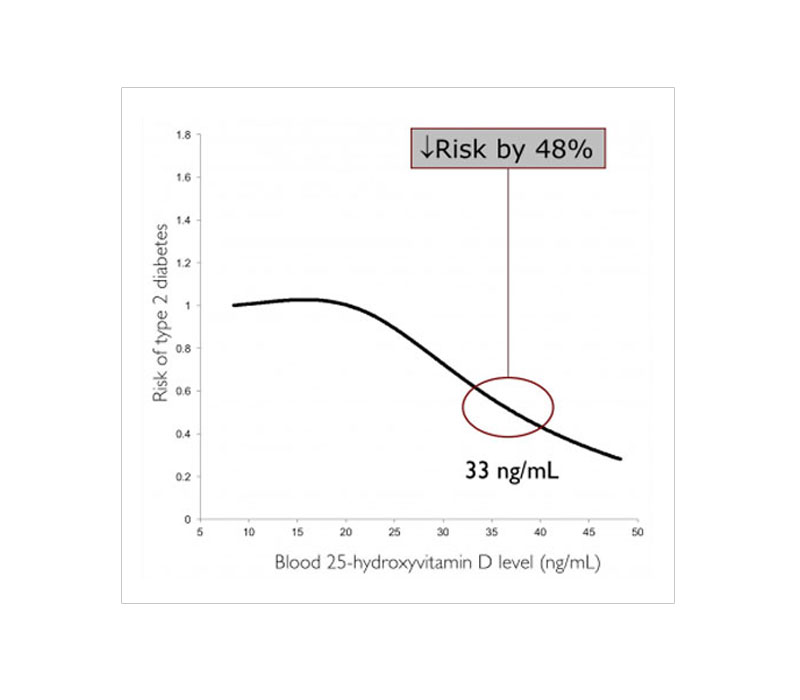
The Vitamin D Status and Incident Type 2 Diabetes study was an ancillary analysis within the Nurses Health Study (NHS), a large cohort of women, to assess the longitudinal association between vitamin D status and risk of developing diabetes. The working hypothesis was that vitamin D status, as measured by serum 25-hydroxyvitamin D level, in women free of diabetes at baseline is inversely associated with development of diabetes. The association was quantified in a nested case-control study design (600 cases of diabetes and 600 controls – matched by age and season of blood draw).

An observational study in the Nurses’ Health Study – a longitudinal cohort of women – supports an association between higher blood level of vitamin D and lower risk of developing diabetes. After adjusting for many factors known to influence diabetes risk – including obesity – our team reported that higher blood level of 25-hydroxyvitamin D was associated with a lower risk of future diabetes among women free of diabetes at baseline. Specifically, women in the top quartile of blood 25-hydroxyvitamin D level (mean level of 33 ng/mL) had a 48% lower risk of developing diabetes compared to women in the bottom quartile (mean level of 14 ng/mL). The benefit was larger among overweight/obese vs. normal weight women. Because of the observational nature of the study, we cautioned that a causal association between vitamin D and diabetes risk needs to be needs to be confirmed in a properly designed and conducted clinical trial.
The study was funded by the National Institute of Diabetes and Digestive and Kidney Diseases (NIDDK) of the National Institutes of Health (NIH).
Results were published in Diabetes Care.

